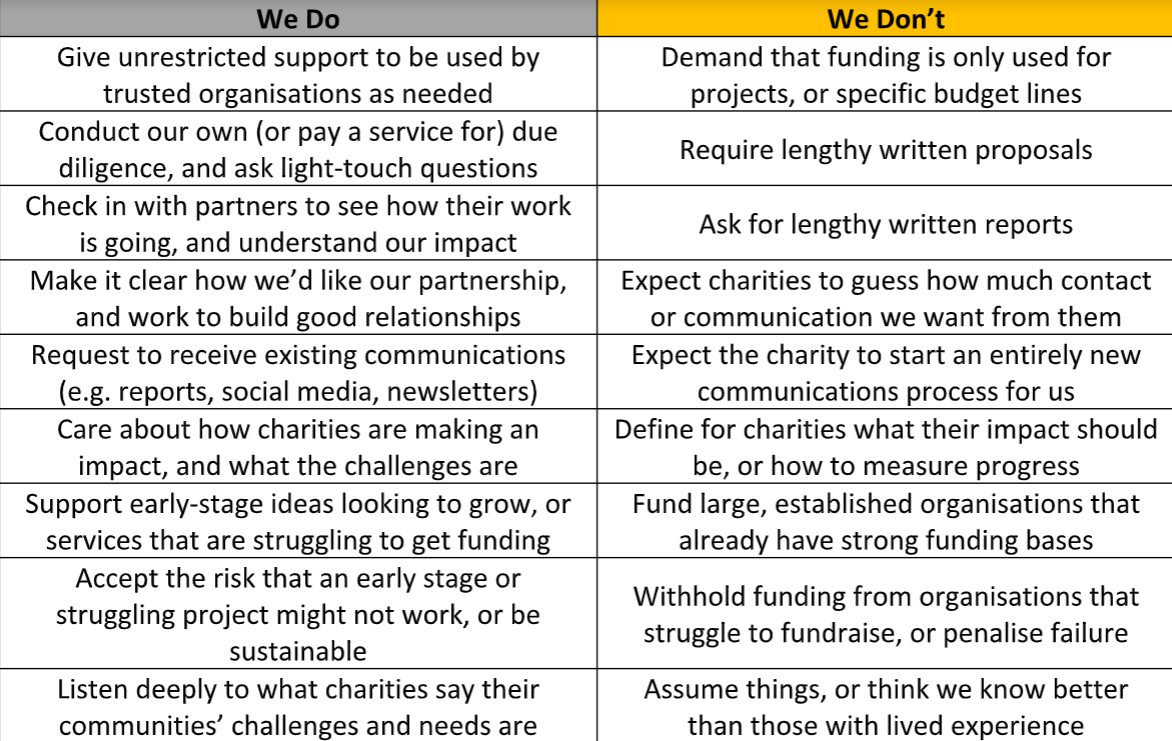Andrew Law discusses the 3 principles which guides his philanthropic giving in this Philanthropy Story.
Is there a better way of giving to charity?
Rethinking philanthropy: developing a set of giving principles
Earlier this year, my sister Jane and I set up the Sara and Michael Scanlon Trust, a donor-advised fund in memory of our beloved parents. We were motivated by a sense of loss and injustice.
Mum and Dad died too young. Throughout their lives, they were both unstinting with their time, money and experience. But they didn’t get a real opportunity to choose how to enjoy and share their lifelong earnings. I know that if they had lived to retirement age, they would have become even more involved with charities and causes they believed in.
The values they modelled for us include generosity, openness, and love for humanity. Jane and I agreed to honour their passion for social justice by donating in their memory.
Becoming a grant-giver after a decade working as a fundraiser was an incredible chance to learn about sitting at the other side of the table. But I have seen first-hand the enormous power imbalance between funders and charities. I felt paralysed with fear of recreating the oppressive privilege inherent in the concept of philanthropy.
Above all, I wanted to avoid replicating bad donor behaviour that I have seen before. I have met a few funders like this over the years:
- people who believe that having money means you have the right to dictate how it should be spent;
- people who want to fund shiny new innovative projects but demand proof of impact first;
- people who refuse to fund ‘overheads’ without realising that none of the project work could happen without paying staff costs and keeping the lights on.
In short, people who think their wealth and privilege means they know best.
Jane and I worked with the amazing I.G. Advisors to develop a giving strategy based on principles which would avoid these funding pitfalls. I believe wholeheartedly in these giving principles, and I would love to see other funders adopt something similar.

By following these principles, we hope to approach philanthropy in a way which ensures that organisations have real agency over how to spend the grants we give. We believe that the best results come from putting both trust and resources in the hands of those doing the work.
Ultimately, we want our giving to reflect what we learnt from our parents: respect for the time and expertise of others, a belief in the innate goodness of human beings and a conviction that our actions can have positive impact.
Questions to ask yourself
If you want to develop your own set of giving principles, here are some questions to get you started:
- What assumptions and biases underpin your decisions around giving?
- What unnecessary restrictions are you placing on donations you make?
- Do you have a complicated application and reporting process?
- How can you lessen the burden on the charities you support?
- Will you trust people with lived experience to try out radical, innovative ideas, or will you only fund what’s been done before?
About the author
Lucy Scanlon is co-founder and director of Roots + Wings, a holistic management consultancy helping charities of all sizes to maximise their potential. She has a decade of experience in the charity sector, and previously worked as fundraising and communications lead for charities including Women for Women International – UK, SafeHands for Mothers and Amref Health Africa. She completed the Certificate in Fundraising from the Chartered Institute in Fundraising in 2014 and was selected as one of the 25 under 35 by Civil Society’s Fundraising Magazine in 2018. Outside work, Lucy loves wild swimming, reading and exploring Devon in her camper van.
